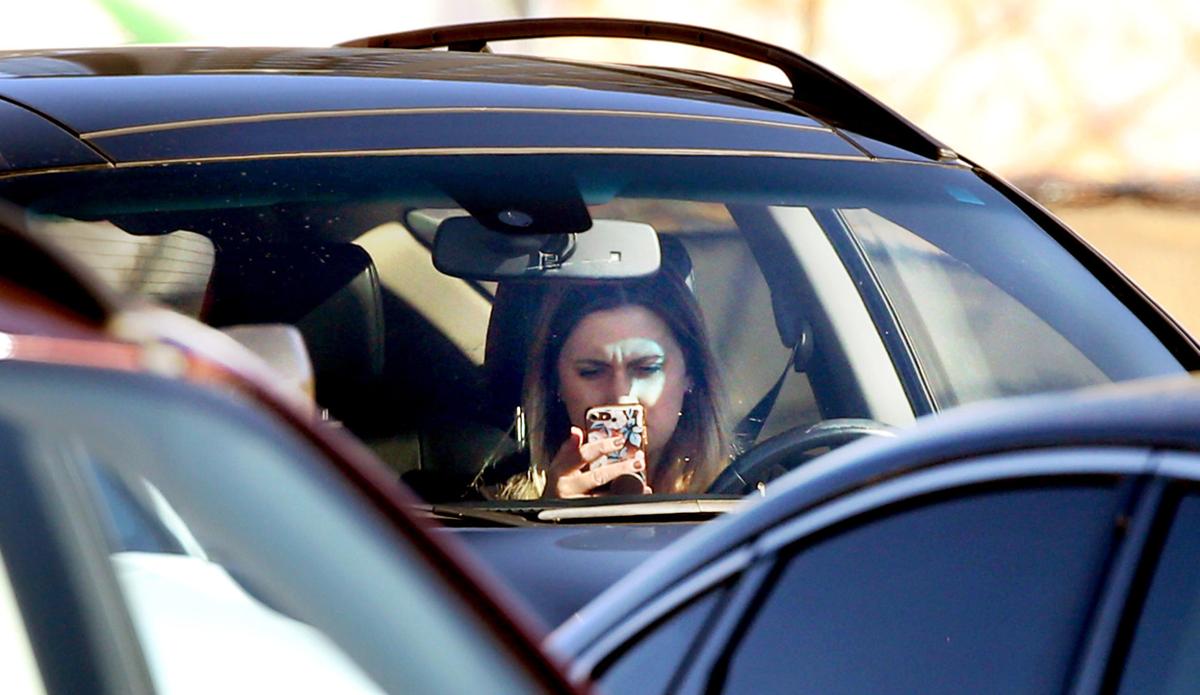PHOENIX — Arizona may finally be ready to join the 47 states that have made it illegal to text while driving unless using a hands-free device.
But supporters of a ban — who have been trying to get one for more than a decade — are having to agree to limits to try to push the proposal to the finish line and get it signed into law.
Senate Bill 1261, as approved Tuesday by the Senate Committee on Transportation and Technology, would create a fine of no more than $99 for a first offense and $200 for repeat violations.
Only if the person using the cell phone or similar device is involved in an accident that causes death or serious injury would the offense rise to the level of a misdemeanor. Even then, the maximum penalty would be four months in county jail and a $4,000 fine.
Sen. Steve Farley, D-Tucson, who has made passage of some sort of restriction a multiyear effort, also had to agree to language saying citations could be issued only if the texting was witnessed by a police officer or “established by other evidence.”
Motorists would not have to surrender a phone to an officer who wants to determine if they were, in fact, texting.
The legislation also spells out that a conviction for a driving-while-texting offense could not be used by the Motor Vehicle Division to take away someone’s license, nor be an excuse for an insurance company to raise a motorist’s premiums.
The unanimous committee vote sends the measure to the full Senate.
But the real challenge could be in the House, where lawmakers repeatedly take a harder stand against what some see as “nanny state” regulations.
That logic drew criticism from Sen. Bob Worsley, R-Mesa, who chairs the Senate panel. “Sometimes it just seems like our political ideology gets in the way of common sense,” he said, adding that lawmakers discussing this issue “have had a hard time … to see through a common-sense lens.”
Worsley had a message for the parade of people who testified for the legislation, some holding pictures of loved ones who were killed by distracted drivers: “I’m sorry it’s taken so long.”
In the interim, some cities and counties in Arizona have enacted their own bans. But vast areas of the state have no such regulation, and there, motorists are free to tap away at messages while driving down the highway.
Even the local laws may not be truly effective.
Michael Infanzon, who lobbies for American Brotherhood Aimed Toward Education, said he has been told that the Department of Public Safety, which patrols all numbered roads, does not issue citations to those who violate local no-texting bans.
Infanzon also took a swat at the penalty provision. “A misdemeanor for killing somebody is not enough,” he said.
Farley, however, said the legislation does not preclude a motorist from also being charged with other offenses after a texting-while-driving accident, including reckless driving or manslaughter.
And Sen. Lisa Otondo, D-Yuma, said those who find the penalties inadequate need to recognize the political reality of multiple failed attempts to enact any law.
“If this is the answer for now, we’ll take it,” she said.
Aside from the limits on penalties, SB 1261 has a variety of exceptions.
For example, texting using a hands-free device would remain legal, even to the point of motorists being able to use their hands to activate or deactivate a function. So would using the device to play music or to use the GPS and mapping functions.
This year’s bill come a year after Sen. Karen Fann, R-Prescott, engineered approval of Arizona’s only texting-while-driving law, a limited law that applies only to teens for the first six months they are driving. That was a political decision, with Fann conceding at the time that anything more would not get approved.
To get her 2017 measure heard in the House, Fann also promised it was not a precursor for more far-reaching restrictions. She specifically vowed she would not sponsor an across-the-board ban on texting while driving in subsequent years.
Fann said she has kept that promise even though she is signed on to the 2018 bill as the lone co-sponsor with Farley. She said SB 1261 is officially Farley’s measure.
Farley modeled it after legislation approved last year in Texas, which finally decided to ban the practice and become No. 47 among states with such a law. That occurred after the Texas Department of Transportation said 455 people died in the state, and more than 3,000 suffered serious injuries, due to distracted driving.





